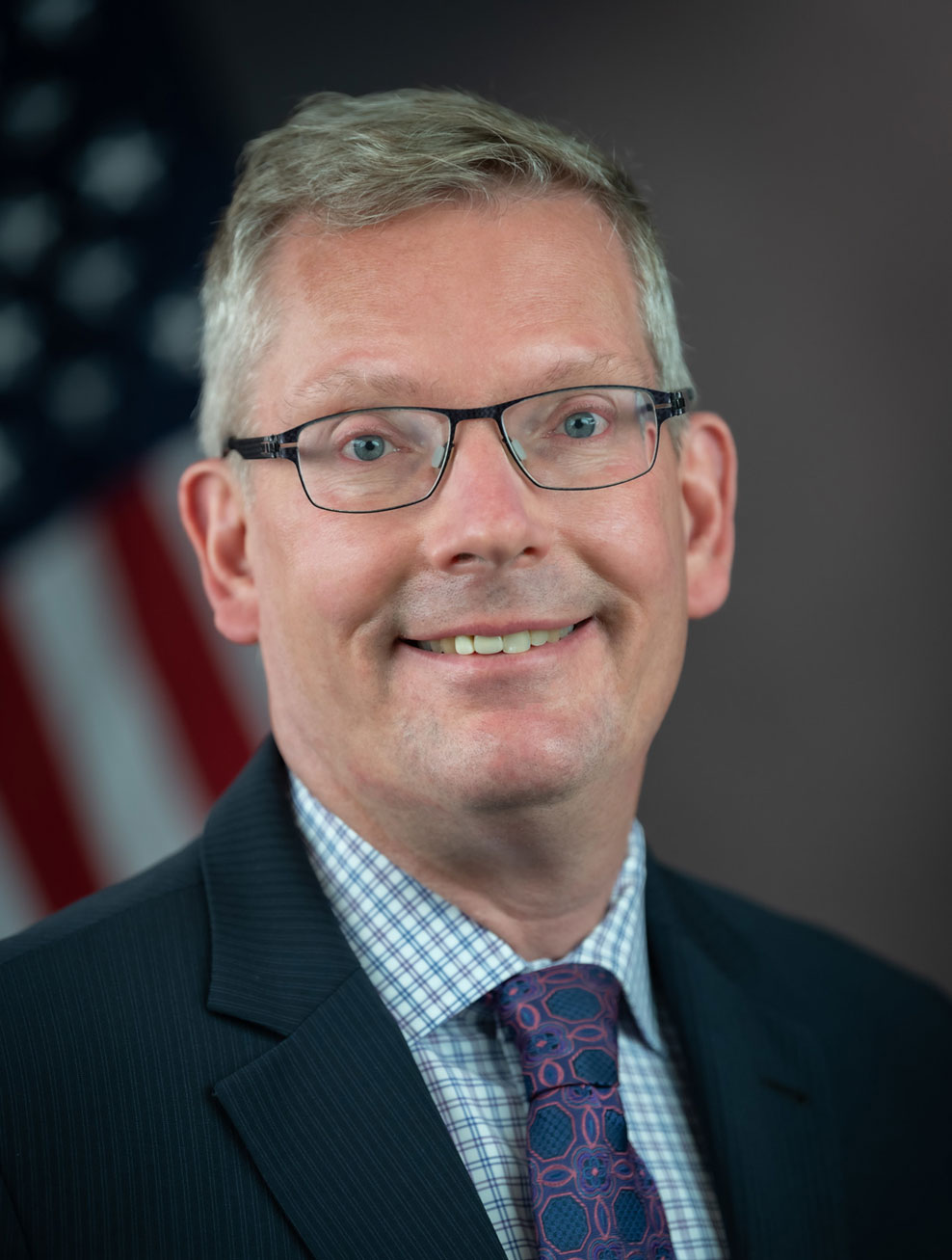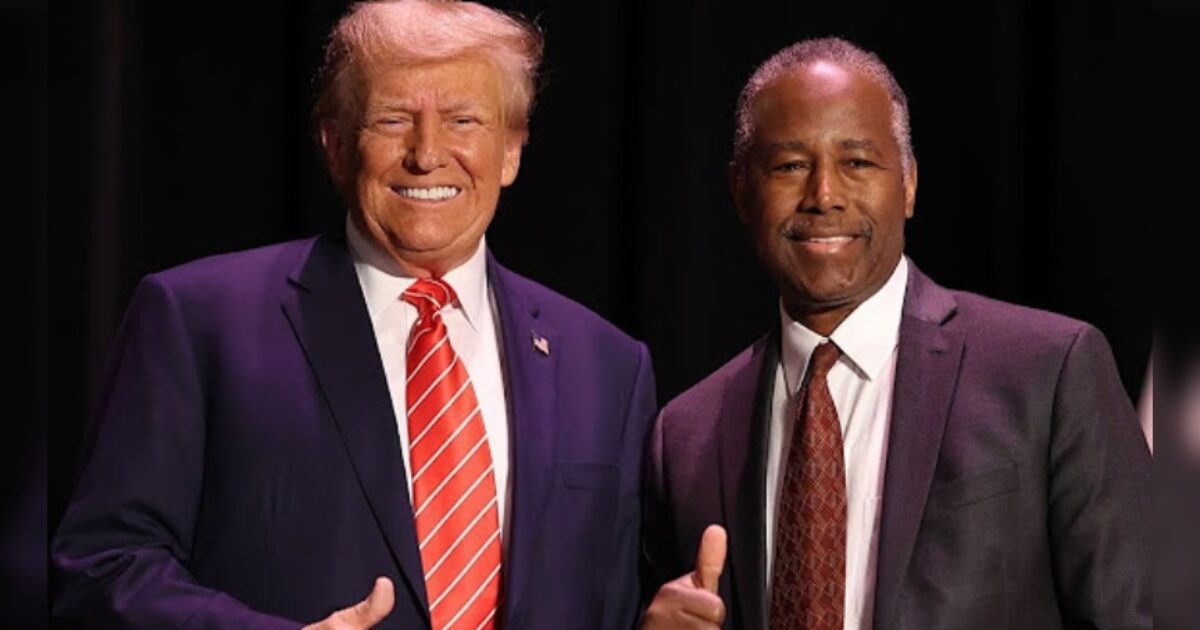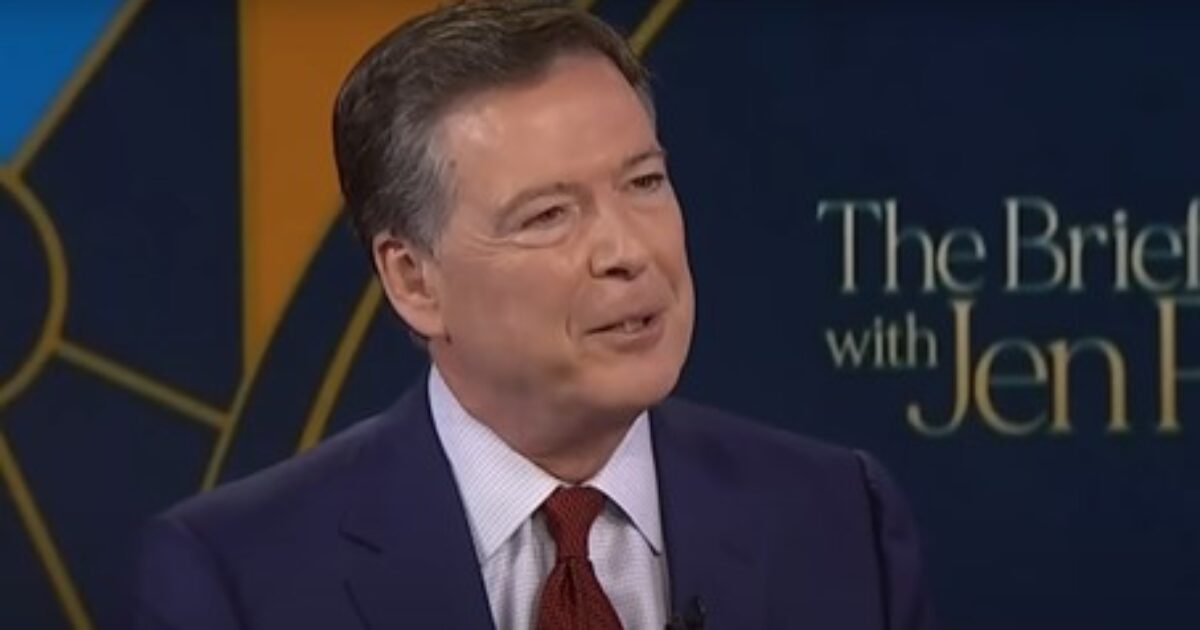Politics
Next phase of digital transformation for SEC, PTO begins

For the U.S. Patent and Trademark Office and the Securities and Exchange Commission, the next steps in their digital transformation journeys are all about using cloud services to drive change. Both agencies are well past the “move to the cloud” phase of their IT modernization strategy.
Now, the SEC and USPTO are embarking on IT modernization initiatives that have a more direct impact on mission and further drives efficiencies.
The SEC is focusing on three broad areas to adopt new and better services.
Dave Bottom is the CIO of the Securities and Exchange Commission.
“We’re at the point now where we’ve moved our enterprise data warehouse to an enterprise data platform on Amazon Web Services (AWS). We’ve moved into Microsoft O365 as a collaboration environment, and are leveraging the capabilities that are there,” said Dave Bottom, the chief information officers of the SEC, during a panel at the recent GITEC conference sponsored by ATARC, an excerpt of which played on Ask the CIO. “We’ve moved to adopt software-as-a-service as a first decision point that we would make rather than building something on-premise. From a procurement acquisition perspective, we have a digital services blanket purchase agreement (BPA), which is, I think, a first for the commission in terms of a focus on digital services, as opposed to infrastructure or application development.”
The SEC awarded a $250 million BPA contract to four firms in 2023.
At the same time, the move to the cloud has allowed the SEC to do more to modernize its underlying infrastructure. Bottom said the agency is less dependent on data centers than ever before.
“We are modernizing our networking on our site and in our security capabilities to account for the fact that we’re more cloud rather than less cloud,” Bottom said. “We’ve adopted the cloud smart methodology, and really, we’re at the point now where access to technology through software-as-a-service or a managed service is really not a problem.”
USPTO using AI to refactor old code
Like the SEC, the USPTO began its cloud journey more than five years ago.
Jamie Holcombe, the USPTO CIO, said his agency’s modernization journey opened the door to reducing latency, both from an infrastructure perspective and from a culture perspective.
On the infrastructure side, Holcombe said USPTO is supporting multiple artificial intelligence efforts.
“We are using generative AI and artificial intelligence for code assistance, refactoring our code and translating a lot of the old code in order for it to work most optimally in the cloud. We are in the beginning stages of it,” he said. “After a 90 day pilot, it’s almost going into production. What we’ve done is we’ve translated the old code and found 80% of its great and the other 20% need experts to figure out and optimize it, make it right.”
Holcombe said his team is doing 30-60-90 day pilots where they have to show progress in 30 days or stop doing the work. USPTO is taking the “fail fast” approach to code modernization.
“You actually can program the GenAI to anticipate that learning. That’s why it’s so fast and that’s why it’s so good,” he said. “We take and generate standard, repetitive code structures, and we actually put that refactoring in so that we’re looking for common things like memory leaks and so forth, such that we don’t use that. We take a lot of the old Oracle stored procedures and pump them into different Python and/or other scripting languages such that we can then move to the cloud and actually use those cloud native services, whether it be AWS, Google Cloud Platform or Azure.”
He added that the USPTO developers are using AI on small snippets of code first and then taking those lessons learned and applying them as they do more code refactoring.
“It is an iterative process of slow momentum and getting success because you really have to think about failing. You have to anticipate failure in order to adapt to it and overcome it,” Holcombe said.
Changing the culture of risk
USPTO is also starting to test agentic AI. Holcombe said his team is applying it to customer service.
“What you’re going to do is apply generative AI to the tier-zero, and you’re going to mature it into tier one, where you don’t need that answering desk because most of the issues and problems can be solved through your learning modules, and you can actually give personalized and customized service over the wire,” he said.
As for the latency in regard to culture, Holcombe said he’s tried to institute a “culture of acceptance,” whether it’s risk or failing or learning.
“The difference between moving fast and moving slow is all dependent upon the culture. So in determining your latency and the ability to accept risk, you have to understand that we’re changing the dynamic within the federal government right now. There’s a sea change among us, and I think it’s a great opportunity to push that latency and not accept the idea that we can do that next week,” he said. “There’s a cost for waiting, and that cost has been normally born by bureaucracy. No more bureaucracy. Get it done now. So I think latency, the length of time it takes to do anything is a key component of the new administration and moving out and getting things done better, cheaper and faster. The government has forgotten cheaper and faster, and now it’s being reminded of it so stark, cheaper and faster is two big components. It’s not just better, it’s cheaper and faster.”
Bottom said the SEC is just dipping its toe into AI capabilities. One major challenge for the agency is managing and labeling its data to ensure it’s authoritative.
“As we move to adopt some of these AI tools that are coming out very rapidly, we’re moving past the point where a user is actually making the determination themselves as they’re going through and doing their daily work,” Bottom said. “What’s authoritative? We’re actually make moving that decision to the tool. So how do we make sure we have the right labeling construct, in terms of competence in the goodness of the data in order to people to make decisions. How do we make sure we’re labeling data in that way?”
The post Next phase of digital transformation for SEC, PTO begins first appeared on Federal News Network.
Politics
President Trump Taps Dr. Ben Carson for New Role — A HUGE Win for America First Agenda

Dr. Ben Carson is the newest member of the Trump administration.
On Wednesday, former Secretary of the Department of Housing and Urban Development, Ben Carson, was sworn in as the national adviser for nutrition, health, and housing at the U.S. Department of Agriculture.
Agriculture Secretary Brooke Rollins shared that Carson’s role will be to oversee Trump’s new Big Beautiful Bill law, which aims to ensure Americans’ quality of life, from nutrition to stable housing.
After being sworn in, Carson shared, “Today, too many Americans are suffering from the effects of poor nutrition. Through common-sense policymaking, we have an opportunity to give our most vulnerable families the tools they need to flourish.”
WATCH:
BREAKING Dr. Ben Carson has been sworn in as the National Nutrition Advisor to Make America Healthy Again
THIS IS A HUGE WIN pic.twitter.com/Dr5AsSDkRM
— MAGA Voice (@MAGAVoice) September 24, 2025
Per USDA:
Today, U.S. Secretary of Agriculture Brooke L. Rollins announced that Dr. Benjamin S. Carson, Sr., M.D., was sworn in as the National Advisor for Nutrition, Health, and Housing at the U.S. Department of Agriculture (USDA).
“There is no one more qualified than Dr. Carson to advise on policies that improve Americans’ everyday quality of life, from nutrition to healthcare quality to ensuring families have access to safe and stable housing,” said Secretary Rollins.
“With six in ten Americans living with at least one chronic disease, and rural communities facing unique challenges with respect to adequate housing, Dr. Carson’s insight and experience is critical. Dr. Carson will be crucial to implementing the rural health investment provisions of the One Big Beautiful Bill and advise on America First polices related to nutrition, health, and housing.
“As the U.S. Secretary of Housing and Urban Development in the first Trump Administration, Dr. Carson worked to expand opportunity and strengthen communities, and we are honored to welcome him to the second Trump Administration to help lead our efforts here at USDA to Make America Healthy Again and ensure rural America continues to prosper.”
“Today, too many Americans are suffering from the effects of poor nutrition. Through common-sense policymaking, we have an opportunity to give our most vulnerable families the tools they need to flourish,” said Dr. Ben Carson. “I am honored to work with Secretary Rollins on these important initiatives to help fulfill President Trump’s vision for a healthier, stronger America.”
On Sunday, Dr. Carson was one of the many speakers at the memorial service of the late TPUSA founder Charlie Kirk.
During the memorial service, Carson highlighted that Kirk was shot at 12:24 p.m. and then continued to share the Bible verse John 12:24, which reads, “Verily, verily, I say unto you, Except a corn of wheat fall into the ground and die, it abideth alone: but if it die, it bringeth forth much fruit.”
WATCH:
Ben Carson reads John 12:24 at the Charlie Kirk’s funeral. Charlie was shot at 12:24.
It reads: “Very truly I tell you, unless a kernel of wheat falls to the ground and dies, it remains only a single seed. But if it dies, it produces many seeds”
God is moving and speaking. pic.twitter.com/0ZbVTAwwYl
— Danny Botta (@danny_botta) September 21, 2025
The post President Trump Taps Dr. Ben Carson for New Role — A HUGE Win for America First Agenda appeared first on The Gateway Pundit.
Politics
LEAKED MEMO: Deep State Prosecutors in the Eastern District of Virginia Claim There Isn’t Enough Evidence to Convict Comey Amid Reports of Imminent Indictment


On Wednesday evening, disgruntled officials in the Eastern District of Virginia leaked contents of a memo explaining why charges should not be brought against James Comey.
As reported earlier, former FBI Director James Comey is expected to be indicted in the Eastern District of Virginia in the next few days.
Comey will reportedly be charged for lying to Congress in a 2020 testimony about whether he authorized leaks to the media.
Officials in the Eastern District of Virginia are still fighting to stop Comey from being charged after Trump fired US Attorney Erik Siebert.
President Trump last week fired Erik Siebert as the US Attorney for the Eastern District of Virginia because he refused to bring charges against Letitia James, Comey, Schiff and others.
On Saturday evening, President Trump announced that he had appointed Lindsey Halligan – his personal attorney who defended him against the Mar-a-Lago raid – as US Attorney for the Eastern District of Virginia.
Now, with just days to go before the statute of limitations runs out to charge Comey for lying during a September 30, 2020 testimony, Lindsey Halligan is reportedly gearing up to indict Comey.
Prosecutors reportedly gave newly sworn-in Halligan a memo defending James Comey and explaining why charges should not brought against the fired FBI Director.
Per MSNBC’s Ken Dilanian:
Two sources familiar with the matter tell me prosecutors in the EDVA US attorney‘s office presented newly sworn US attorney Lindsey Halligan with a memo explaining why charges should not be brought against James Comey, because there isn’t enough evidence to establish probable cause a crime was committed, let alone enough to convince a jury to convict him.
Justice Department guidelines say a case should not be brought unless prosecutors believe it’s more likely than not that they can win a conviction beyond a reasonable doubt.
Two sources familiar with the matter tell me prosecutors in the EDVA US attorney‘s office presented newly sworn US attorney Lindsey Halligan with a memo explaining why charges should not be brought against James Comey, because there isn’t enough evidence to establish probable…
— Ken Dilanian (@DilanianMSNBC) September 24, 2025
The post LEAKED MEMO: Deep State Prosecutors in the Eastern District of Virginia Claim There Isn’t Enough Evidence to Convict Comey Amid Reports of Imminent Indictment appeared first on The Gateway Pundit.
Politics
Nearly 8 in 10 Voters Say the United States is in Political Crisis After the Assassination of Charlie Kirk

Nearly eight in ten voters believe that the United States is in a political crisis in the wake of the assassination of conservative icon Charlie Kirk.
According to a Quinnipiac University national poll of registered voters released on Wednesday, a massive 93 percent of Democrats, 84 percent of independents, and 60 percent of Republicans said the nation is in a political crisis.
“The Kirk assassination lays bare raw, bipartisan concerns about where the country is headed,” Quinnipiac University Polling Analyst Tim Malloy said of the poll results.
Quinnipiac reports:
Seventy-one percent of voters think politically motivated violence in the United States today is a very serious problem, 22 percent think it is a somewhat serious problem, 3 percent think it is a not so serious problem, and 1 percent think it is not a problem at all.
This is a jump from Quinnipiac University’s June 26 poll when 54 percent thought politically motivated violence in the United States today was a very serious problem, 37 percent thought it was a somewhat serious problem, 6 percent thought it was a not so serious problem, and 2 percent thought it was not a problem at all.
Nearly 6 in 10 voters (58 percent) think it will not be possible to lower the temperature on political rhetoric and speech in the United States, while 34 percent think it will be possible.
Over half, 54 percent, of voters believe the US will see increased political violence over the next few years. Another 27 percent said they think it will stay “about the same,” while just 14 percent believe it will ease.
A 53 percent majority also said they are “pessimistic about freedom of speech being protected in the United States.”
Surprisingly, a 53 percent majority also believes the current system of democracy is not working.
“From a perceived assault on freedom of speech to the fragility of the democracy, a shudder of concern and pessimism rattles a broad swath of the electorate. Nearly 80 percent of registered voters feel they are witnessing a political crisis, seven in ten say political violence is a very serious problem, and a majority say this discord won’t go away anytime soon,” Malloy added.
The vast majority, 82 percent, said the way that people discuss politics is contributing to the violence.
“When asked if political discourse is contributing to violence, a rare meeting of the minds…Republicans, Democrats, and independents in equal numbers say yes, it is,” Malloy said.
The survey was conducted from September 18 to 21 among 1,276 registered voters with a margin of error of +/- 3.3 percentage points.
The post Nearly 8 in 10 Voters Say the United States is in Political Crisis After the Assassination of Charlie Kirk appeared first on The Gateway Pundit.
-

 Entertainment6 months ago
Entertainment6 months agoNew Kid and Family Movies in 2025: Calendar of Release Dates (Updating)
-

 Entertainment3 months ago
Entertainment3 months agoBrooklyn Mirage Has Been Quietly Co-Managed by Hedge Fund Manager Axar Capital Amid Reopening Drama
-
Tech6 months ago
The best sexting apps in 2025
-

 Entertainment5 months ago
Entertainment5 months agoKid and Family TV Shows in 2025: New Series & Season Premiere Dates (Updating)
-

 Tech7 months ago
Tech7 months agoEvery potential TikTok buyer we know about
-
Tech7 months ago
iOS 18.4 developer beta released — heres what you can expect
-

 Tech7 months ago
Tech7 months agoAre You an RSSMasher?
-

 Politics7 months ago
Politics7 months agoDOGE-ing toward the best Department of Defense ever





